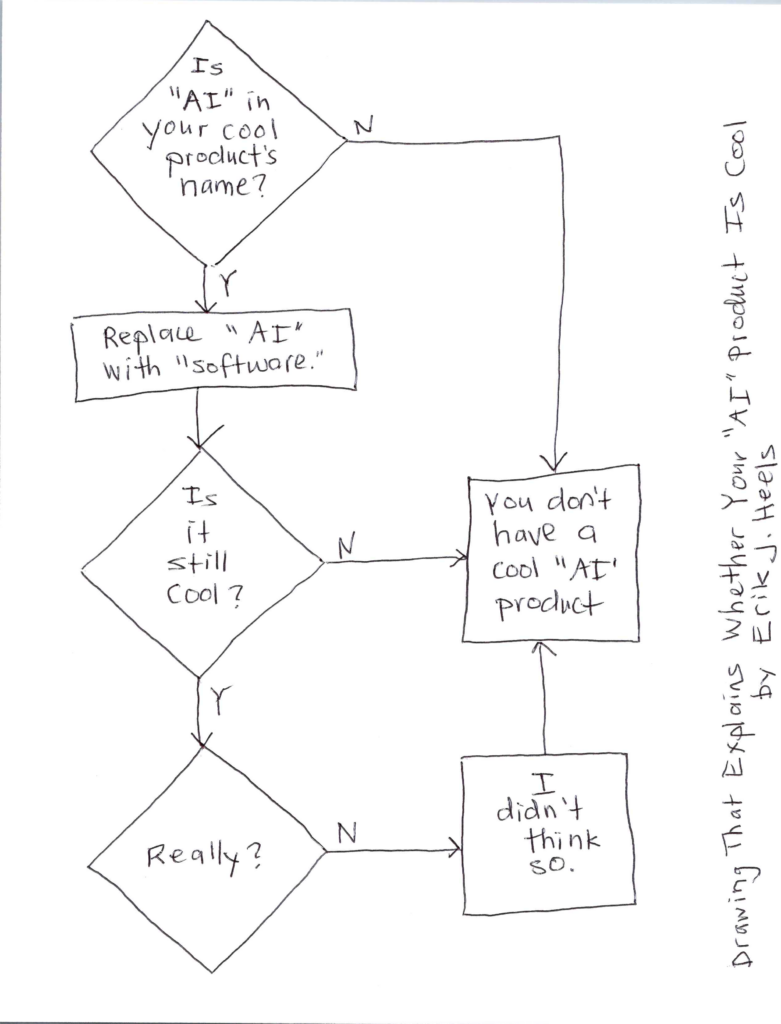This Is Our “17 Seconds” Newsletter #118: 17 Seconds = Useful Info Quickly.
Res ipsa loquitur.
In related news, on March 12, 2024, the United States Patent and Trademark Office and United States Copyright Office published a joint study on non-fungible tokens (NFTs).

17 Seconds is a publication for clients and other VIPs. Powered by Mailchimp and the beat of a different keyboard player. Click here to subscribe to 17 Seconds.




Tom emailed:
“So true. Erik. Do a word hunt on AI through the last forty years and you will find it applied to many entities, down to and including automatic word completion. It may also have been applied to so-called ‘expert systems,’ the fancy name for a database directed to a specific expertise.”
Bob emailed:
“I asked chatGPT to defend itself;
Artificial Intelligence (AI) and traditional software differ significantly in their capabilities and functioning. While software operates based on predefined instructions and rules set by programmers to perform specific tasks, AI systems can learn from data, adapt, and make decisions without explicit programming. AI mimics human intelligence by utilizing algorithms like machine learning and deep learning to recognize patterns, make predictions, and solve complex problems. Unlike traditional software, AI systems can continuously improve their performance over time through exposure to new data and experiences. Additionally, AI often involves dealing with uncertainty and making probabilistic decisions, whereas traditional software typically follows deterministic logic. In essence, while software executes predefined tasks, AI possesses the ability to learn, reason, and act autonomously, making it more adaptable and capable of handling dynamic and uncertain environments.”
Dan emailed:
“The community depends on your brilliance to clarify such matters.
Thanks for being a shining star”